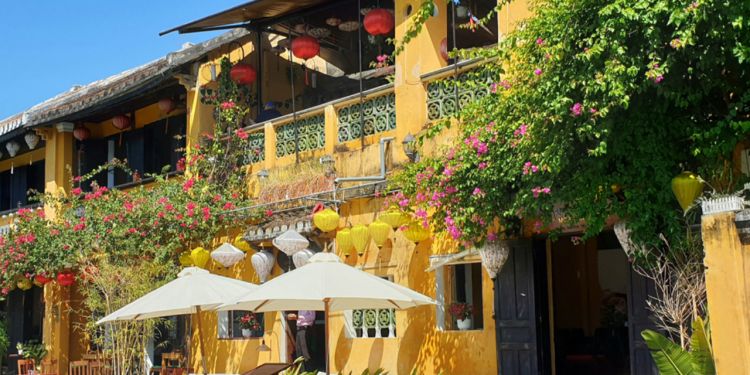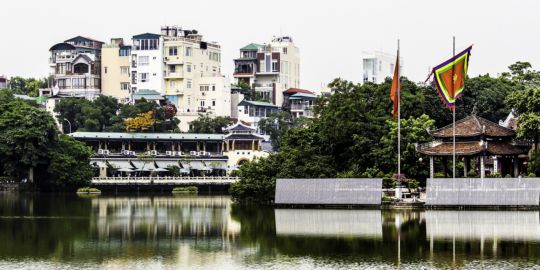Buying property in Hanoi

With its economy on the rise and a plethora of exciting and innovative projects in the pipeline, Hanoi should be on any foreign investor's radar. Vietnam's capital city's middle class has been rapidly growing over the past few years, and the housing market is steadily accelerating. Transportation upgrades and various infrastructure projects have seen a myriad of foreign investments since 2015, confirming that Hanoi is not to be underestimated.
Important:
Buying property in Hanoi is simple enough, but all documents must be completed in Vietnamese. We have, therefore, included reliable translation services at the bottom of this article.
Where to buy property in Hanoi
Hanoi boasts a varying ensemble of charms and challenges, and it simply depends on the area you choose to live in. First and foremost, foreigners cannot buy land in Hanoi, as this is owned by the people and regulated by the state. One of the most notable areas of the capital city is Tây Hồ, a popular location for new and old foreigners to settle down. Housing prices in this part of town are typically at their highest compared with other districts of Hanoi. Cầu Giấy is another attractive district and is home to Keangnam Hanoi Landmark Tower, Hanoi's tallest building. Cầu Giấy is also home to the Korean community that has chosen to settle in Hanoi. Walking the streets of Do Quang, Nguyen Thi Thap, Hoang Ngan, or Hoang Dao Thuy will give you a first-hand look at their community and culture.
The process of buying property in Hanoi
As Vietnam is a developing country, foreigners are often charged slightly more. It is important to remember this practice will occasionally transcend into the housing business, and you may feel frustrated when sharing your contract with Vietnamese friends. Cushman & Wakefield's estimate that the price per square meter in Hanoi will be 45,716,000 VND or USD 1,858 in 2022-225.
Vietnam's housing law seems simple upon inspection, as it states that anyone with a Vietnam visa in their passport can potentially buy property. The realities, of course, are a little more technical.
Setting up 100% foreign-owned business
ut the most common way of buying property is setting up a business in Vietnam that is 100% foreign-owned. This process should take a month or two if no additional licenses are needed. You will need to contact the Department of Planning and Investment (DPI) to get your Investment Registration Licence, which will allow you to start a business in Hanoi, and typically lasts up to ten years. From here, a Business Registration Certificate will be required, giving you a further 90 days to make the initial investment.
Forming a joint venture
Going into business with a Vietnamese shareholder will allow you to purchase households and real estate projects, as well as buildings for sale. While Vietnamese citizens can lease property indefinitely, local companies may lease until the termination of the company. One of the most common mistakes foreign investors make is using unreliable nominees, so it pays to thoroughly research trusted partners first. Emerhub has an outstanding reputation throughout Vietnam and other Southeast Asian countries.
Buying as an individual
Foreigners who are residents are legally allowed to buy property in Hanoi; however, it is under the condition that it is for personal dwelling only. Properties owned by individuals cannot be rented to third parties and are subject to a lease term of 50 years. These leases are renewable. If you are married to a Vietnamese citizen or are an overseas Vietnamese, you are granted freehold tenure on any property you own.
Finalizing a property purchase in Vietnam
After choosing a property of interest, the first step will be to sign a reservation agreement, linking the seller and yourself. This will typically involve paying a deposit. Due diligence must be paid here, and it is strongly recommended that you notarize the reservation agreement to protect your interests legally. Ensure the seller is legitimate by requesting to see their identification and property ownership certificates. Details of their insurance or a bank guarantee will also reinforce their integrity and trustworthiness. Property purchase agreements must be drafted in Vietnamese, so it is imperative you have a reliable translator there with you and that the contract is written in English and Vietnamese.
Useful contacts:
Recommended Hanoi Translation
Chang-Castillo and Associates
(877) 708-0005
AM Vietnam Translation Company
Tel: 842438789800









